Toronto’s real estate market is globally recognized for its intensity, high demand, and limited housing inventory. Homes sell fast, and bidding wars are the norm, not the exception. If you want to secure the right residential mortgage in this environment, preparation is key.
Understanding the essentials of Toronto’s housing landscape and the mortgage process can greatly increase your chances of success. By knowing how the process works, evaluating your lending options, and approaching each step with confidence, you’ll be better equipped to make your homeownership goals a reality in this highly competitive environment.
Knowing Your Financial Portrait
There is something you should know before you start house hunting: you need to have a clear idea of how much you can afford. Have a peek at your money.
Give your finances a close eye on the following:
- Monthly costs and income.
- Job history.
- Past-due bills and loans.
- Credit history and credit rating.
These are what lenders check when they are trying to gauge your credit value and how much money they should lend you.
Establish Your Budget
Estimate your highest possible mortgage using a mortgage affordability calculator. Don’t miss to account for:
- Taxes on your home.
- Insurance on your home.
- HOA charges (if your complex is in one).
- Repairs and maintenance.
Researching Mortgages
Understanding different types of mortgage makes it easier to narrow down your options and reduce confusion.
Most Common Types of Mortgages
- Fixed-rate loans: Interest and payment do not change the entire duration of the loan.
- Adjustable-rate loans (ARMs): Lower initial interest rate, which has the potential to rise.
- FHA financing: Ideal for first-time home buyers with poor credit.
- VA loans: For both military veterans and active military personnel.
- Jumbo loans: Employed in purchasing homes over ordinary home loan ranges.
Finding the right residential mortgage largely depends on your risk tolerance, down payment capability, and the stability of your income.
The Pre-Approval Process
Pre-approval simplifies the process of buying your home and puts you in a stronger bargaining position.
Why Is Pre-Approval Important?
- Informs sellers you’re a qualified buyer.
- Shortens final approval process.
- Gives you an assured loan amount.
What You’ll Need?
- Proof of income (pay stubs, W-2s).
- Proof of employment.
- Tax returns (usually last two years).
- Credit report.
- Asset and liability schedule.
Select the Best Lender
Don’t move with the first mortgage quote you receive. Compare fees, interest rates, and customer reviews. NerdWallet is a useful comparison site for this purpose.
Working with Mortgage Experts
By using the exceptional services of a mortgage broker or financial planner, you can save time. They lead you through to match you with loan products that suit your financial objectives and safeguard you against risks such as variable interest rate increases or charges hidden in fees.
Simplifying the Application Process
The application process itself can be easy if done in a systematic manner.
Step-by-Step Guide
- Fill in the mortgage application form.
- Submit documents required.
- Wait for the loan estimate.
- Finish up underwriting.
- Get loan approval.
Avoid These Traps
- Leaving out information.
- Building new debt while processing.
- Not responding to lender questions.
Stay in Touch
Keep your application flowing and advancing with ongoing contact from your lender.
Closing the Deal
You’re almost at the finish line, but there are some more important things to do.
Understand the Costs
- Origination fees.
- Appraisal and inspection charges.
- Title insurance.
- Recording charges.
- Review the loan estimate and closing disclosure carefully.
Prepare for the Closing Meeting
- Bring ID, cashier’s check, and any requested documentation.
- Understand what you’re signing.
Final Review
Ensure all terms, interest rates, loan amounts, and repayment schedules match your expectations.
Ongoing Management
After closing the deal, managing your mortgage responsibly is vital.
Stay on Track
- Make auto-pay arrangements to prevent late payment fees.
- Check statements regularly every month.
- Maintain an emergency fund for home expenses.
Refinance Consider
If the rates decline or your credit score increases, refinancing can shorten your loan term or your monthly payment.
Wrap Up
Navigating Toronto’s competitive real estate market and finding the right residential mortgage can feel overwhelming, but with full preparation and knowledge, you can get the best loan to fit your financial situation.
From understanding your financial profile and mortgage types to selecting the right lender and managing your mortgage post-closing, each step matters in making your homeownership journey smooth and successful.
Ready to take the next step with confidence?
At Diverse Mortgage Group, we specialize in guiding homebuyers like you through the mortgage process with ease and expertise.
Let us help you find the perfect residential mortgage solution tailored to your needs, stress-free and straightforward.
FAQs
1. How long does pre-approval take?
Pre-approval will take 1–3 days if your paperwork is in order.
2. Can I switch lenders after pre-approval?
Yes, you are not stuck with a lender until closing. Just be mindful of your timing and rate locks.
3. Is refinancing always the best choice?
Not necessarily. Consider closing costs and how long you’ll be staying in the house before you refinance.


